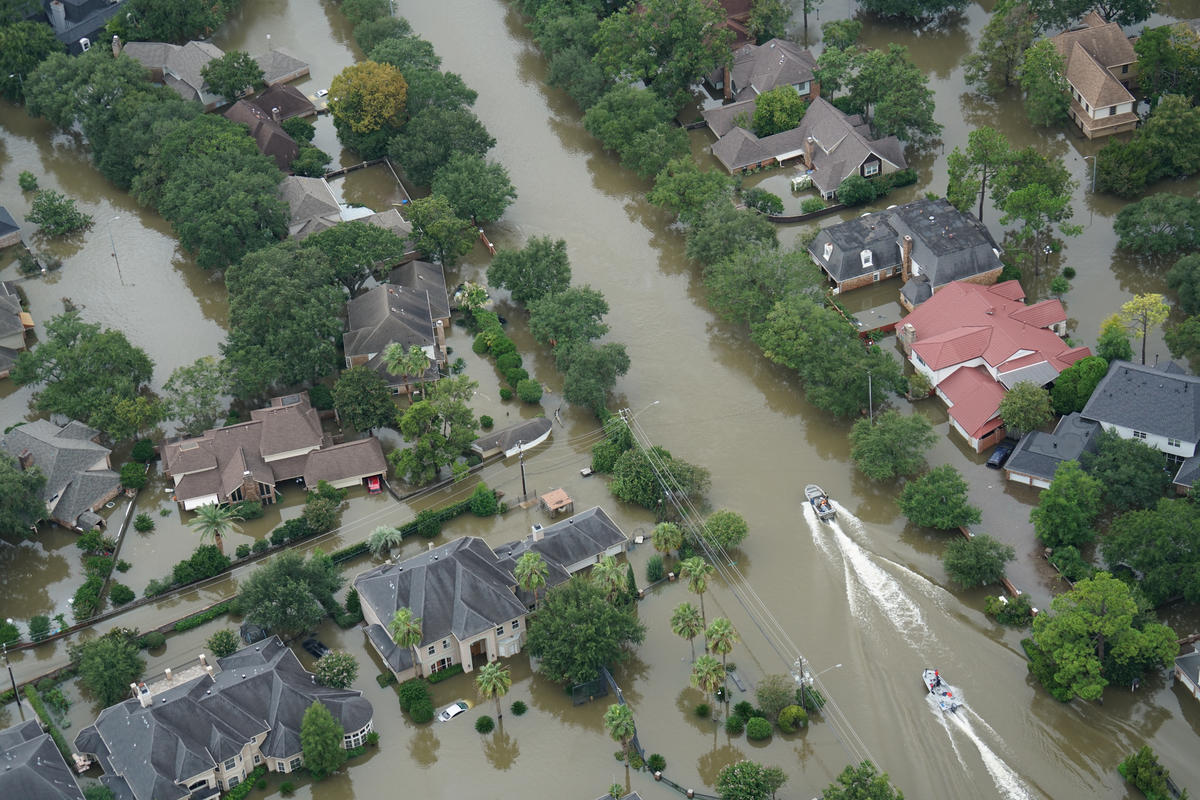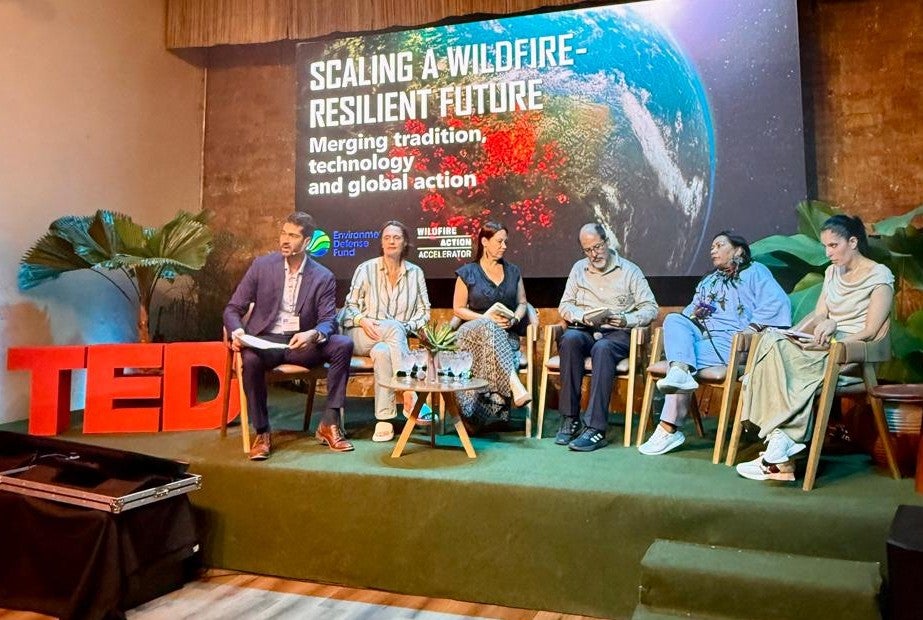To meet our climate goals, we need climate plans backed by science and economics

As countries make their way to Baku, Azerbaijan to attend COP29, the annual United National climate conference, we have a clear challenge. Currently, the climate commitments made by countries are not ambitious enough to achieve the goals set out in the Paris Agreement to avoid the worst impacts of climate change.
COP29 is our moment to meet this challenge head-on, where countries can align on what needs to happen to meet our global climate goals.
Next year, countries will update their national climate plans under the Paris Agreement for 2025-2030—and the urgency to accelerate climate action has never been clearer. These climate plans are called Nationally Determined Contributions (NDCs), and they need to be ambitious enough to meet the pace and scale demanded by science.
Building on global lessons and efforts towards global solutions
Responding to this global call, the NDC Partnership and the Green Climate Fund (GCF) launched a joint Climate Investment Planning and Mobilization Framework. The Framework aims to create a common language for diverse stakeholders to communicate priorities, needs, and challenges in mobilizing climate finance.
This framework underscores the fundamental importance of strong evidence-based decision-making in revising and enhancing NDCs. Commitments need to be ambitious—but also realistic, achievable, and aligned with the latest scientific understanding of climate change and its impacts.
At Environmental Defense Fund (EDF), we believe in working and building on the efforts of partners. For decades we have worked to bridge science, economics and policy to drive forward practical solutions to some of our thorniest challenges, from cutting methane pollution to halting deforestation, which puts us on. We’re working to build on this record of advancing science and economics-backed NDCs by contributing new research, innovative tools, and solutions that are grounded in evidence, which uniquely positions us to Use evidence-based decisions for NDC 3.0 Revisions.
How to Use Evidence-based Decision-Making for Impactful NDC Revisions
As the process for revising NDCs is underway, here are some ways in which EDF stands to contribute, building on its experiences.
- Align Climate Commitments with Scientific Evidence
Evidence-based NDCs align with the latest scientific findings, particularly from the IPCC, ensuring commitments are commensurate with the goal of limiting global temperature rise to 1.5°C. Aligning with the most recent science also allows for a nuanced understanding of each country’s unique circumstances, enabling tailored and effective climate strategies. EDF is also developing guidelines for integrating blue foods into NDCs, drawing upon emerging science that highlights the climate-smart potential of these food sources, while ensuring the guidelines can adapt to the specific national context to maximize their effectiveness and relevance.
- Leverage Economic Models for Cost-effective Climate Solutions
Economic models and sectoral analyses can help identify the most cost-effective pathways for emissions reduction. EDF’s Economics work on the U.S. Electricity Model Intercomparison Project (MIP), which compared various electricity planning models to identify the most effective approaches for designing a cost-effective and clean U.S. power grid. This work helps guide stakeholders in selecting the best tools to design a clean, reliable, and affordable grid under deep decarbonization scenarios.
- Prioritize Adaptation Planning and Risk Assessment:
Comprehensive vulnerability assessments and climate risk analyses are crucial for prioritizing adaptation measures. EDF’s climate risk assessment work in sectors like agriculture and water resources provides valuable models for integrating robust risk analysis into adaptation planning. For example, EDF’s Fisheries Climate Vulnerability Assessment (CVA) identifies which fishery species and ecosystems are most at risk from climate change impacts, helping to guide climate-ready planning and adaptive management to ensure resilient fisheries.
Another relevant area important climate adaptation is EDF’s Insurance and Disaster Risk work. EDF’s Economics team is researching innovative solutions to strengthen the insurance safety net, close gaps in coverage, and ensure that every community has the tools and resources to recover from climate disasters.
- Include Transparency, Credibility, and Progress-Tracking:
Evidence-based NDCs enhance transparency and credibility, building trust among stakeholders. For example, advanced measurement technologies, like EDF’s satellite-based methane detection project MethaneSAT, offer new tools for accurate emissions monitoring and progress tracking. With its ability to detect cumulative pollution from millions of widespread sources as well as major point sources, MethaneSAT will provide actionable data to companies, advocacy groups and governments, allowing swifter action slash methane missions.
- Unlock Climate Finance and Innovation:
Robust, data-driven plans are more likely to attract investors and unlock finance for climate action. EDF’s research on innovative financing mechanisms offers insights into leveraging private capital. For example, our farm finance analyses show how farmers — from corn and soy farmers in the Midwest to dairy farmers in the Northeast — realize returns on their investments in conservation. Evidence-based approaches also help identify gaps in current technologies, spurring innovation in clean energy and sustainable practices.
- Collaborative Efforts to Harness Collective Knowledge
Evidence-based revisions of NDCs represents a critical opportunity for countries to harness collective knowledge and tools to achieve our climate goals. It requires collaboration between governments, international organizations, research institutions, and the private sector. Whether we’re focused on cutting methane with energy and food companies, or conserving tropical forests alongside Indigenous communities, at EDF, we’ve seen time and time again that to go far, we have to go together.
Global Impact for Urgent Action in the Next 14 Months
As we stand at this critical juncture in our fight against climate change, the importance of evidence-based decision-making in revising NDCs cannot be overstated. The next 14 months will be pivotal in shaping our global emissions trajectory for years to come. We call on all stakeholders – governments, international organizations, research institutions, and the private sector – to embrace this approach and collaborate in harnessing our collective knowledge and tools. EDF stands ready to support this crucial process with our wealth of experience, innovative research, and cutting-edge tools. From our work on MethaneSAT for accurate emissions monitoring to our economic models for cost-effective climate solutions, we offer our expertise to help countries develop robust, science-based NDCs. Together, we can set the world on a path towards a sustainable, low-carbon future. Contact EDF today to explore how we can assist in strengthening your climate commitments and turning them into concrete, impactful actions.












